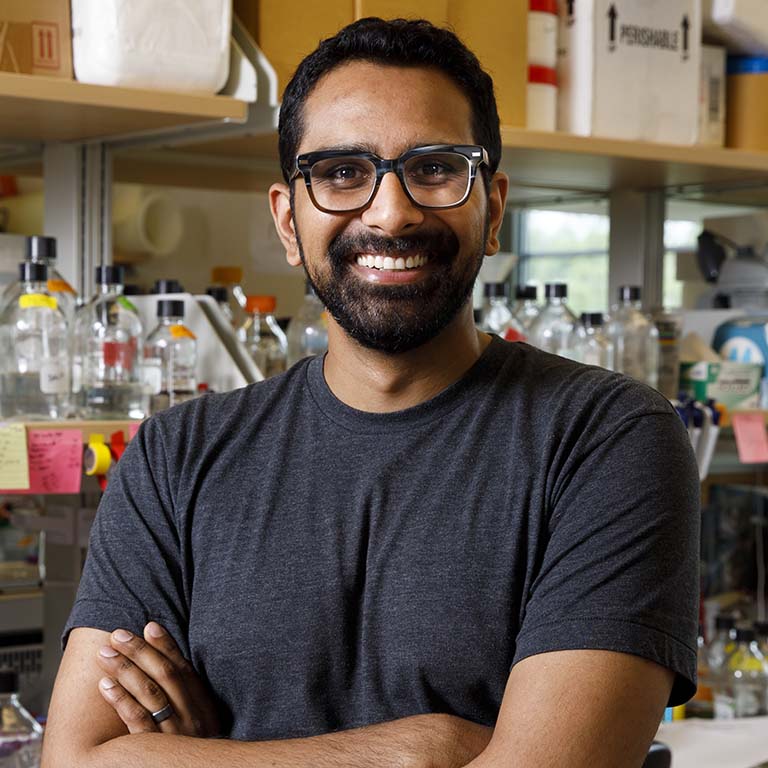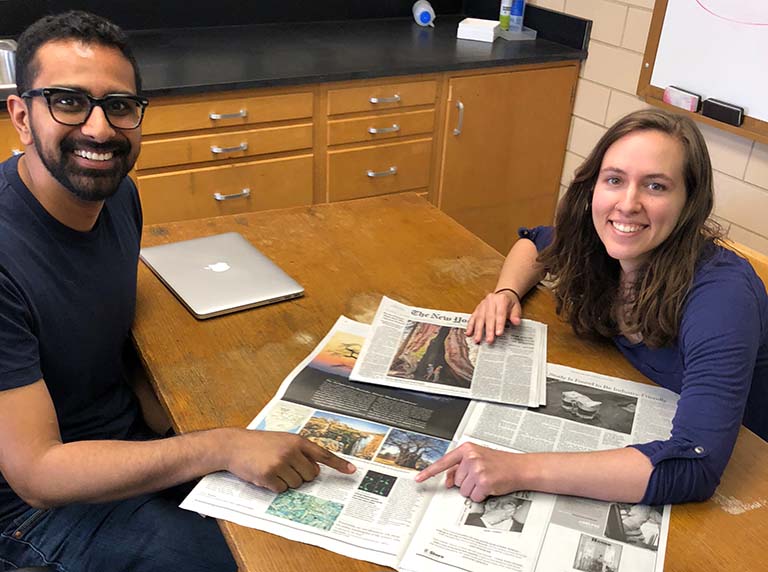The American Society for Microbiology has recognized Ankur Dalia with its Award for Early Career Basic Research for his outstanding contributions to microbial sciences.
Dalia is an associate professor in the Indiana University College of Arts and Sciences’ Department of Biology. His primary research interest is to understand the regulation and mechanisms that underlie a conserved mode of horizontal gene transfer termed ‘natural transformation.’
Dalia has received extensive funding from the National Institutes of Health, the Department of Energy, and the National Science Foundation in support of his research. He is a 2019 recipient of the IU Bloomington Outstanding Junior Faculty Award.
Bacterial species can rapidly acquire novel traits like antibiotic resistance and virulence through horizontal gene transfer. One major mode of horizontal gene transfer is natural transformation—a physiological state in which some bacterial species can take up free DNA from the environment and integrate it into their genome by homologous recombination. The main focus of research in the Dalia lab is to uncover the regulation and molecular mechanisms underlying natural transformation using the facultative bacterial pathogen Vibrio cholerae as a model system. Beyond furthering an understanding of horizontal gene transfer, Dalia’s work has also provided fundamental insights into conserved bacterial processes including signal transduction, transcriptional regulation, extracellular surface appendages called pili, and DNA metabolism. The Dalia lab also leverages its studies of natural transformation to develop novel genome editing technologies that can be used to dissect the biology of bacterial species for both academic and industrial applications.
The American Academy of Microbiology, the honorific leadership group within ASM, manages ASM’s awards. A selection committee chooses recipients from among a competitive list of candidates nominated by their peers.


 The College of Arts
The College of Arts